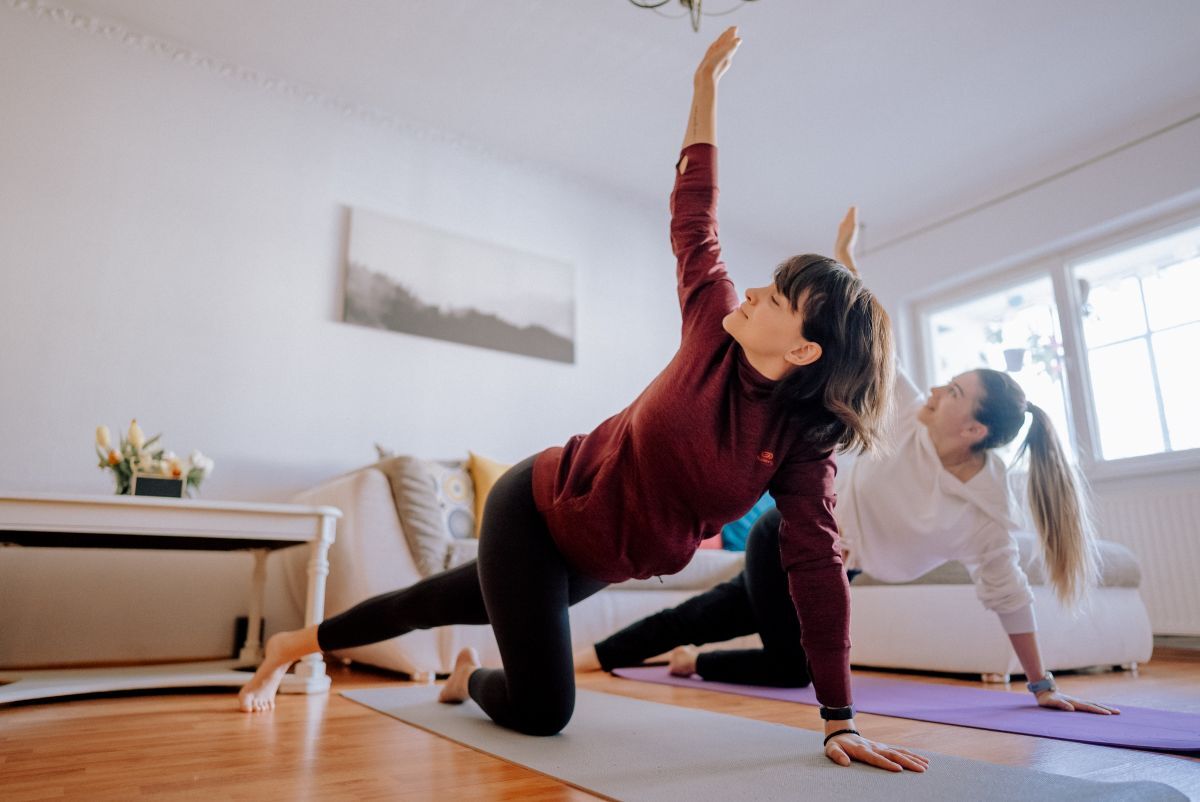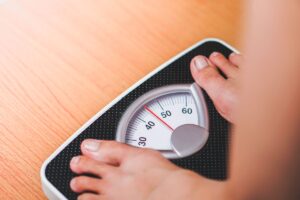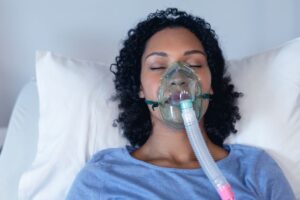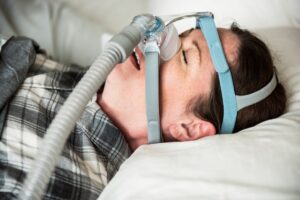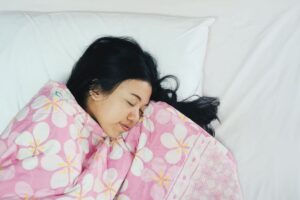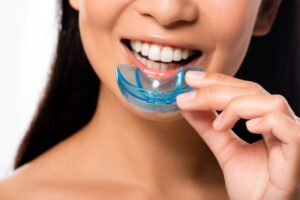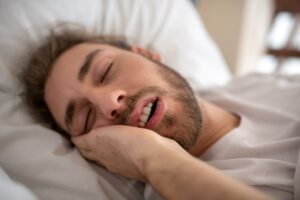If you’re struggling with sleep apnea but not quite ready for a CPAP machine or other medical treatments, you might be wondering — are there natural remedies for sleep apnea that actually help?
The answer is yes, especially for people with mild obstructive sleep apnea (OSA) or loud snoring. While medical treatments are often necessary, making certain lifestyle changes can improve symptoms, reduce apnea events, and help you sleep better.
Here are the top home remedies to try — and when it’s time to talk to a provider.
1. Lose Excess Weight
Excess weight — especially around the neck — puts pressure on the airway and increases the likelihood of obstruction during sleep.
Even a modest weight loss of 5 to 10% can lead to a noticeable reduction in snoring and apnea episodes.
2. Adjust Your Sleep Position
Sleeping on your back makes it easier for your tongue and soft tissues to collapse into the airway. Try:
- Sleeping on your side or stomach
- Using a positional pillow to stay in place
- Wearing a positional belt or backpack to prevent back sleeping
This is known as positional therapy and works well for people with positional sleep apnea.
3. Avoid Alcohol and Sedatives Before Bed
Alcohol, sleeping pills, and certain medications relax the throat muscles — making it more likely for the airway to collapse.
Try to:
- Avoid alcohol for at least 3–4 hours before bedtime
- Talk to your doctor about sedative alternatives if needed
4. Practice Good Sleep Hygiene
Improving your overall sleep habits can help reduce apnea symptoms and improve daytime energy. That includes:
- Going to bed and waking up at the same time each day
- Limiting screen time before bed
- Creating a dark, quiet, cool sleep environment
- Avoiding caffeine in the late afternoon and evening
5. Treat Nasal Congestion
If you’re breathing through your mouth at night, it may be due to a blocked nose, especially during allergy season.
Try:
- Using a saline rinse or neti pot
- Taking a decongestant (short-term use only)
- Trying nasal strips to open the airways
- Managing seasonal allergies with medication
6. Strengthen Your Airway Muscles
Exercises that strengthen your throat and tongue muscles — known as myofunctional therapy — can help reduce airway collapse.
Simple exercises include:
- Pressing your tongue to the roof of your mouth
- Practicing “tongue slides”
- Singing or doing throat-focused vocal exercises
Doing these regularly may help tone the muscles around your airway.
7. Use a Humidifier
Dry air can irritate your nasal passages and throat. Adding a humidifier to your bedroom can help soothe inflammation and make breathing easier at night.
Try adding:
- A few drops of eucalyptus or lavender essential oil
- A cool mist setting if you live in a dry climate
8. Quit Smoking
Smoking increases inflammation, mucus production, and fluid retention in the upper airway. Quitting can significantly improve sleep apnea symptoms and overall respiratory health.
When Natural Remedies Aren’t Enough
While these remedies can help improve sleep quality, they are not a cure for moderate or severe sleep apnea.
If you:
- Snore loudly
- Wake up gasping or choking
- Feel tired during the day despite full sleep
- Have been told you stop breathing in your sleep
…it’s time to get tested. You may qualify for a home sleep apnea test — a simple, overnight test you can do in your own bed.
Frequently Asked Questions
Can sleep apnea go away naturally?
In some cases, yes — especially with weight loss and lifestyle changes. However, many people still need medical treatment to fully resolve their symptoms.
Are there vitamins or supplements that help sleep apnea?
While some people find magnesium or melatonin helpful for sleep, there’s no strong evidence that supplements alone can treat sleep apnea.
Is side sleeping really better for sleep apnea?
Yes. Side sleeping helps keep the airway open and reduces the chance of the tongue collapsing backward.
Do natural remedies work as well as a CPAP machine?
For mild cases, some natural remedies may help. For moderate to severe sleep apnea, CPAP or oral appliances are typically more effective.

